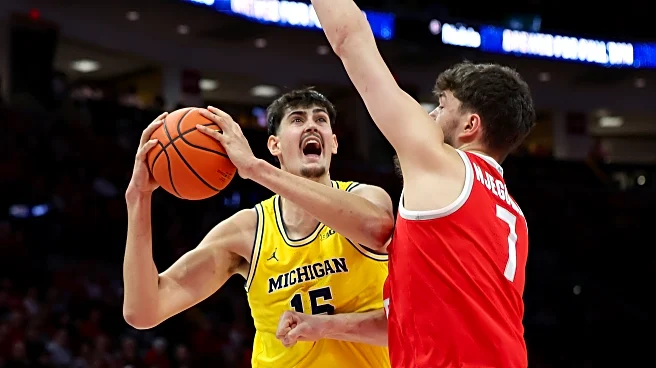What's Happening?
A Filipino priest, who vocally opposed former President Rodrigo Duterte's aggressive anti-drug campaign, has been named a recipient of the Ramon Magsaysay Award, often regarded as Asia's equivalent of the Nobel Prize. The priest, who overcame his own struggles with drug addiction, has been recognized for his efforts in providing dignified funerals for those killed in the crackdown and for establishing the Arnold Janssen Kalinga Center, which offers food, clothing, and shelter to those in need. His activism led to charges of sedition under Duterte's administration, although these were dropped in 2023. The awards, named after a popular Philippine president, celebrate 'greatness of spirit' and selfless service across Asia.
Why It's Important?
The recognition of the priest's work highlights the ongoing debate over Duterte's controversial drug policies, which have been criticized for resulting in thousands of deaths, primarily among the poor. This award not only honors the priest's humanitarian efforts but also brings international attention to the human rights issues associated with Duterte's presidency. The priest's story of redemption and service underscores the potential for personal transformation and societal impact, challenging the narrative of punitive justice. This could influence public opinion and policy discussions in the Philippines and beyond, particularly regarding approaches to drug addiction and law enforcement.
What's Next?
The awards ceremony is scheduled for November 7 at the Metropolitan Theatre in Manila. The priest's continued advocacy may inspire further dialogue on human rights and justice in the Philippines. Additionally, the international recognition could bolster support for similar humanitarian efforts and potentially influence future policy reforms in the region.
Beyond the Headlines
The priest's journey from addiction to advocacy raises broader questions about the role of personal transformation in social justice movements. It also highlights the ethical implications of state-led violence and the importance of community-based support systems in addressing complex social issues like drug addiction.











